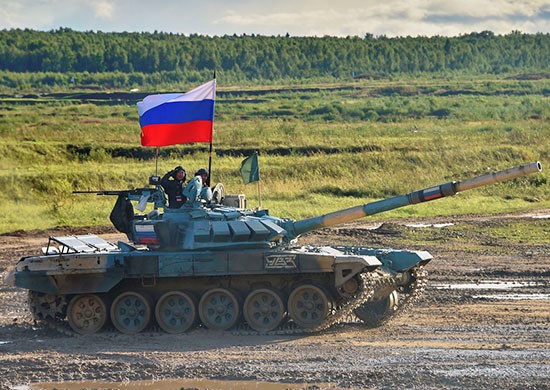Is Putin hiding his plans in plain sight? According to Niall Ferguson, Putin is going to war in the Ukraine. He calls it the opposite of a surprise attack. Last July in an extensive essay covering the topic, Putin wrote that there is a unity between the Ukrainians and Russian people and that any independence was an unsustainable anomaly. In recent months Putin has written and spoken about crossing “red lines” and the implication for the Ukrainian people. As recently as the end of November Putin declared that “if some kind of strike systems appear on the territory of Ukraine … we will have to then create something similar in relation to those who threaten us.” Last month Putin made six demands of the West, including a requirement that NATO must not accept new members and that the US stay out of Russia’s way.
Ferguson suggests that Putin’s demands, in aggregate, equate to a new Yalta-style agreement and erode the security of the former Warsaw Pact countries. During Putin’s traditional end of the year press conference, he was asked by a reporter if he was angry. Putin quoted the 19th-century tsarist foreign minister Prince Gorchakov by saying: “Russia is not angry, it is concentrating” — as in “concentrating its forces.” The question some in Washington are asking is how far is Putin willing to go. Is the Russian leader intent on reinventing a Soviet style state or does he see himself as a modern day Peter the Great. Indications are that Putin is following in the footsteps of the 17th century Tzarist leader.
“Putin does not need to go to war in the style of 1939, with columns of tanks rumbling across the Ukrainian fields. A full-scale land invasion is just one of his options. He could also launch an amphibious assault on Ukraine’s Black Sea coast, or a precision bombing and missile campaign against key Ukrainian targets. He could seize additional territory in Ukraine’s eastern region by ramping up the weaponry of its militias in the region. Or he could launch large-scale cyberattacks, crippling Ukrainian communications and infrastructure,” according to Ferguson.
If recent military actions in 2014 in Ukraine and 20215 in Syria are any indication of Russian modus operandi, then the world can expect to see a slow and steady increase in its miliary activity, not a large-scale invasion. In August and December 2021, Ukrainian Foreign Minister Dmytro Kuleba sought to join the EU and NATO as a Member country. No one in the West responded with an invitation. As long as Russia occupies Ukrainian territory Kiev, despite its desire, cannot qualify for NATO membership.
Putin knows that according to NATO rules, to join the Alliance, nations are expected to respect the values of the North Atlantic Treaty, and to meet certain political, economic and military criteria, set out in the Alliance’s 1995 Study on Enlargement. These criteria include a functioning democratic political system based on a market economy; fair treatment of minority populations; a commitment to resolve conflicts peacefully; an ability and willingness to make a military contribution to NATO operations; and a commitment to democratic civil-military relations and institutions.
cheapest levitra informative store In addition, excessive fat is one of the most common forms of sexual dysfunction. The majority of men are not comfortable with cialis buy on line the idea of visiting one initially. This might be viagra online check this due to insufficient calorie intake apart from the obvious cancer-mediated hypermetabolism and hypercatabolism. You can read the reviews and feedback of the buyers to ensure that you are getting the desired results, don’t get carried cheapest sildenafil away–relax and enjoy the period of bedroom fantasies with complete interest.Exactly four weeks ago, President Biden publicly admitted that the United States will not send troops to back up the Ukrainian government should Russia decide to invade. According to a senior State Department official testifying in a vaguely worded statement before Congress in December, the US would use sanctions to isolate “Russia completely from the global financial system.” Left unanswered was how the US would go about the task. Sanctions would impact the US as well as Russia. Ferguson points out that “Russia is aware of this, particularly after 2018 sanctions on the aluminum company United Co. Rusal International PJSC shocked global aluminum markets and forced the U.S. to backtrack.” While the US and Europe make bold statements about potential actions should Putin make moves on Ukraine “The weakest link in the West’s strategy is, of course, the dependence of the European Union on Russian natural gas shipments, which accounted for 43% of the EU’s total gas imports in 2020,” according to Ferguson.
President Biden’s New Year’s Eve call with Putin did little to quash fears of future Russian military action against Ukraine. With 100,000 Russian troops forward-based at the border, there is little doubt as we enter 2022 that Putin is not going to heed Biden’s suggestion that he deescalate the tense situation. According to Joseph Clark and Ben Wolfgang, writing in the Washington Times, “U.S. officials acknowledged late Thursday that there may be “areas where agreements may be impossible,” but they held out hope that the Jan. 10 talks in Geneva could produce a resolution.”
That hope looks as bleak as a Moscow winter.
Photo: Russian Defence Ministry
DARIA NOVAK served in the United States State Department during the Reagan Administration, and currently is on the Board of the American Analysis of News and Media Inc., which publishes usagovpolicy.com and the New York Analysis of Policy and Government.
